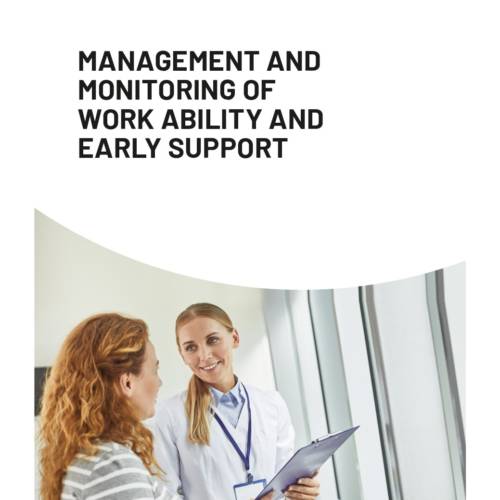Work ability management
Management and monitoring of work ability and early support carried out at the workplace refer to practices based on the needs of the workplace that have been agreed upon in writing by the workplace and occupational health care with the aim of promoting employees’ work ability and preventing incapacity for work throughout their career.
Osion alasivut
Occupational health negotiation
Work ability is linked to work, working conditions and the flow of work, as well as the employee’s health, competence and work motivation. Fewer work ability problems arise if the working conditions and work are developed together and the individual characteristics of employees are taken into account at the workplace.
Occupational health cooperation and work ability support
Occupational health cooperation refers to systematic and goal-oriented cooperation between the employer, employees or their representatives and occupational health care in accordance with jointly agreed procedures.
Frequently asked questions and answers about sickness absences and work ability
The procedures and practices that promote and support work ability are called work ability management. The workplace and occupational health care should jointly agree on and prepare a written description of practices for the management and monitoring of work ability and early support. The model is discussed in occupational safety and health cooperation. The management of sickness absences is an important part of the early support model.
Early support for work ability and intervention in problems are part of the working methods and ethical principles of a functioning workplace. They require cooperation, commitment to agreed principles, communication skills and the courage to intervene even in difficult issues.
Work ability discussions are a continuous activity and part of the caring involved in supervisory work. The work ability discussion model, created in cooperation with and with the expertise of occupational health care, is a tool for supporting the adequacy of the personnel resources of the work community, the functioning of the work community, the effectiveness of the work, and the work ability and well-being of the individual.
Fair and equal treatment fosters a good atmosphere. In addition to this, the model helps clarify the responsibilities and roles of different parties and strengthen cooperation at the workplace. The principles related to early support for work ability are central to cooperation on occupational safety and health matters. Once the model has been created, the next steps are communication and orientation, followed by the assessment and further development of the activities at the workplace.
